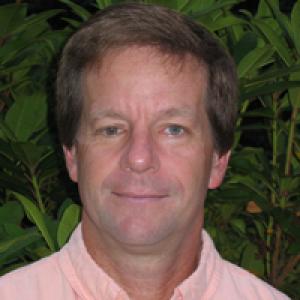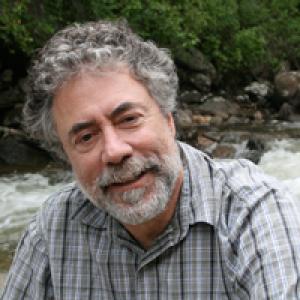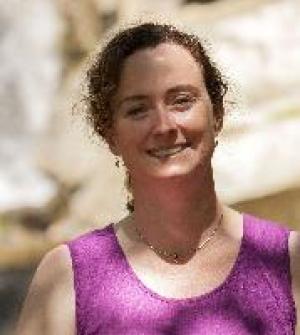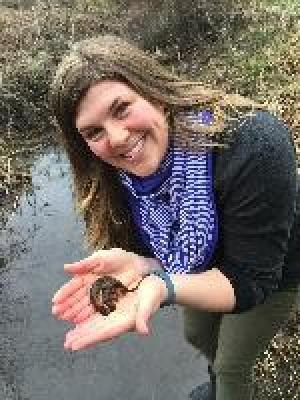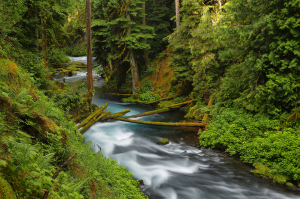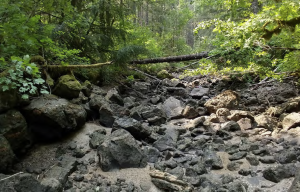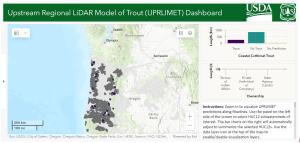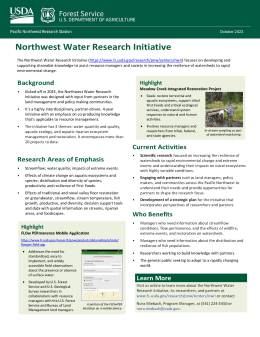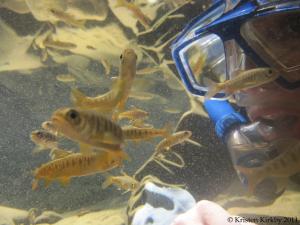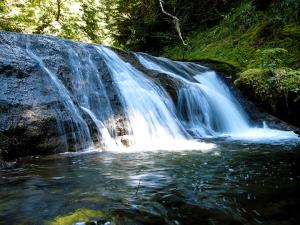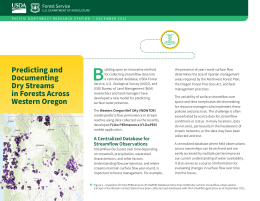Northwest Water Research Initiative
The Northwest Water Research Initiative focuses on developing new knowledge to assist resource managers and society in increasing the resilience of watersheds to rapid environmental change.

Cascade Lakes, Deschutes National Forest. USDA Forest Service photo.
One of the most critical resources from forested landscapes is water. National forests and grasslands supply some of the purest water in the country, serving more than 60 million people in 33 states. Water from national forests also supports fish and wildlife habitat and recreational opportunities, among many other uses.
Water is key to the health of forest and aquatic ecosystems to the prosperity of agriculture, tourism, and other industries. Understanding where water comes from and how to manage it has singular scientific, political, environmental, and economic relevance.
The Pacific Northwest Research Station has a long legacy of innovation in watershed sciences. Hydrology, aquatic ecology, fish biology, and, the effects of forest and rangeland management on watersheds are just some of our areas of expertise. Given very high interest from land managers and other partners about this topic, the PNW Research Station has developed the Northwest Water Research Initiative and grounded it in the current information needs of resource managers and policy makers.
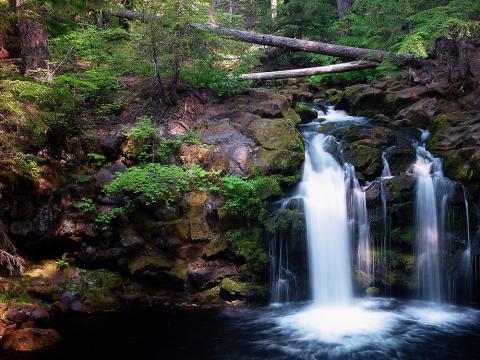
Waterfall in the Umpqua National Forest. USDA Forest Service photo.
The Northwest Water Research Initiative will develop new knowledge focused on increasing the resilience of watersheds to rapid environmental change, including increasingly extreme events. The initiative emphasizes scientific inquiry that explicitly addresses the impacts of this change on increasingly novel ecosystems with highly variable conditions. Our questions will be geographically focused on the forests and rangelands of Alaska, Washington, and Oregon, and guided by the diverse people who live, work, and play here. This includes indigenous communities that rely on water, salmon, and other First Foods that these landscapes provide.
The work under this initiative is organized around three themes that ranked high on the list of our partners’ information needs:
- Water quantity and quality. We are undertaking research to better understand the factors controlling streamflow and water quality, including the effects of extreme events such as drought, floods, and severe wildfire.
- Aquatic ecology. We are assessing change and projecting how it is likely to affect the structure, function, and biodiversity of aquatic and riparian ecosystems, including First Foods and other subsistence resources.
- Aquatic-riparian ecosystem management and restoration. We are conducting research and developing tools that guide the work of aquatic and riparian restoration.
Collectively, this work will strategically employ the PNW Research Station’s unique set of strengths:
- Close connections with land managers.
- Unrivaled access to experimental forests and rangelands and other diverse land and riverscapes where research can be conducted.
- Highly skilled cadre of research hydrologists, geomorphologists, ecologists, and other scientists.
Many partners have helped shape this initiative and will continue to advance and refine the work as it progresses. This allows us to ask the most useful questions, develop the most accessible information tools, and ultimately maximize delivery of relevant new knowledge about expanding extremes and their effect on watersheds in a rapidly changing world.
Current projects:

The Stillaguamish River in Mount Baker-Snoqualmie National Forest. USDA Forest Service photo by Anne Vassar.
- Western Oregon Streamflow Permanence
- Western Oregon WeT DRy model (WOWTDR)
- FLOwPER Field App
- Southeast Alaska salmon simulator
- UPRLIMET: Upstream regional LiDAR model for extent of trout
- Cross-scale controls on low flows and stream temperature regimes in headwater catchments of western North America
- Diversity and Inclusion in Fisheries and Natural Resources
- Instream Habitat Refugia for Trout
- Exploring Freshwater Biodiversity Using eDNA
Key Personnel
Contact
-
Person
Nora Miebach
Program Manager
Staff
-
Person
Steve Wondzell
Research Ecologist -
Person
Gordon Grant
Research Hydrologist -
Person
Sherri Johnson
Research Ecologist -
Person
Elizabeth Dent
Assistant Station Director for Research -
Person
Nora Miebach
Program Manager -
Person
Rebecca Flitcroft
Research Fish Biologist -
Person
Sonja Kolstoe
Research Economist -
Person
Brooke Penaluna
Research Fisheries Biologist -
Person
J. Ryan Bellmore
Research Fish Biologist -
Person
Philip Manlick
Research Wildlife Biologist -
Person
Kellen Nelson
Research Forester -
Person
Michael Wisdom, Dr.
Research Wildlife Biologist -
Person
Charles H. Luce
Research Hydrologist
Collaborators
Agricultural Research Service
Alaska Coastal Rainforest Center
Alaska Department of Fish and Game
Alaska Sea Grant
Alaska U.S. Geological Survey Cooperative Unit
Bonneville Power Administration
Brian Staab, USDA Forest Service Region 6
Bureau of Reclamation
Central Council of the Tlingit and Haida Indian Tribes of Alaska
Columbia River Intertribal Fish Commission
Confederated Tribes of the Umatilla Indian Reservation
Grande Ronde Model Watershed
John Mallard and Garret Pignotti, Oak Ridge Institute for Science and Education (ORISE)
Montana State University
Oregon State University
Southeast Alaska Watershed Coalition
Southeast Sustainable Partnership
Tongass National Forest
University of Alaska Southeast
University of Idaho
USDA Forest Service Region 6
USDA Forest Service Region 10
Wallowa-Whitman National Forest
Washington State University
Data and Tools
-
Tool
-
Interactive Map
-
Tool
-
Tool
-
Interactive Map
Science Findings
Briefing Sheet
-
File Type: pdf
File Size: 229KB
Features
-
Feature Story
Projects
-
Project
-
Project
-
Project
-
Project
Research Highlights
Publications
- Brooke E. Penaluna, Jonathan D. Burnett, Kelly Christiansen, Ivan Arismendi, Sherri L. Johnson, Kitty Griswold, Brett Holycross, Sonja H. Kolstoe. 2022. UPRLIMET: UPstream Regional LiDAR Model for Extent of Trout in stream networks
- Rebecca L. Flitcroft, William R. Brignon, Brian Staab, J. Ryan Bellmore, Jonathan Burnett, Paul Burns, Brian Cluer, Guillermo Giannico, Joseph M. Helstab, Jeremy Jennings, Christopher Mayes, Celeste Mazzacano, Lauren Mork, Kate Meyer, Jay Munyon, Brooke E. Penaluna, Paul Powers, Daniel N. Scott, Steven M. Wondzell. 2022. Rehabilitating valley floors to a Stage 0 condition: A synthesis of opening outcomes.
- Brooke E. Penaluna, Jennifer M. Allen, Ivan Arismendi, Taal Levi, Tiffany S. Garcia, Jason K. Walter. 2021. Better boundaries: identifying the upper extent of fish distributions in forested streams using eDNA and electrofishing




